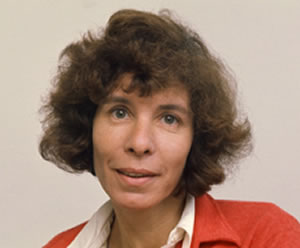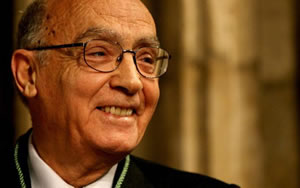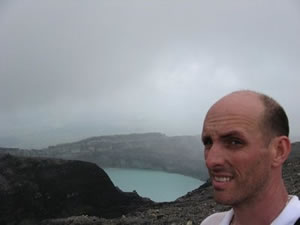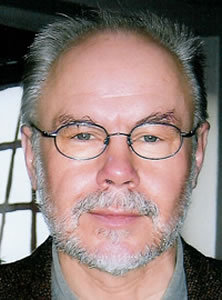De Nederlandse schrijfster en journaliste Renate Rubinstein werd geboren op 16 november 1929 in Berlijn. Zie ook mijn blog van 16 november 2006 en ook mijn blog van 16 november 2007 en ook mijn blog van 16 november 2008.
Uit: Links en rechts in de politiek en in het leven
“De ondergang van het avondland hebben we nu in elk geval gehad. Het maoisme in China is bezweken. Feminisme en communisme hebben elkaar in Nederland uitgeschakeld, dat ruimt dus aardig op.
Onopgelost blijft alleen het vraagstuk van de oriëntatie die we zoeken omdat we die kwijt zijn. Persoonlijk zou ik de wereld waarin wij leven niet zozeer bezeten noemen als wel onoverzichtelijk. Om de knoop door te hakken en het overzicht dan maar te forceren, verdelen we de wereld in links en rechts. En bedoelen daarmee goed en kwaad, want de dingen moeten op hun plek vallen. Maar de wereld werkt niet mee en we zijn daarom gedwongen onze progressieve idealen in steeds andere Heilige landen onder te brengen. Cuba, Vietnam, China – je noemt ze en beseft onze sof. Al die landen en hun bevrijdingsbewegingen en volksrevolutie stonden ons als een voorbeeld voor ogen en menigeen die die verre paradijzen bezocht keerde er nog enthousiaster van terug dan hij vantevoren al verwacht had te zijn. Sindsdien werd ons druppelsgewijs de werkelijkheid gewaar: de concentratiekampen in al die landen, de vervolging van kunstenaars, homoseksuelen en revolutionairen die de Sovjetlijn niet wilden volgen, de massale vlucht als er even een kans was (Cuba) en zelfs als er nauwelijks kans op overleven was (Vietnam), en de dood van miljoenen slachtoffers van de culturele revolutie in China die thans op een Bende van Vier afgewenteld wordt. Het treurigste lot van allen trof misschien de Viet Cong, die pluriforme bevrijdingsbeweging, die hartelijker en langduriger dan wie ook onze sympathie genoten had en die nu, na de zege van Noord-Vietnam, tegen alle afspraken en verwachtingen in, om zeep gebracht werd in naam van het doel waarvoor zij streden: de bevrijding van Zuid-Vietnam. Ons recentste idool was de bevrijdingsbeweging in El Salvador, een land dat echter weer terugviel in de onbekendheid waar het zojuist even uitgehaald was, toen de beklagenswaardige bevolking daar niet links bleek of rechts, maar slechts, erg onideologisch, gemotiveerd door de behoefte om in leven te blijven. En zelfs de plo blijkt achteraf, in al die jaren hadden we daar geen idee van, een beweging te zijn die, meer nog dan in Israël, gehaat en gevreesd was in Libanon. We wisten dat niet, want de kranten meldden dat niet omdat het alleen maar dagelijks leven was en dus niet paste in de grootscheepse ideologische verdeling die wij voor de wereld relevant achten. Vroeger hadden we de godsdienstoorlogen, maar die blijven in onze ideologische eeuw strikt voorbehouden aan de Ierse en Islamitische delen van de onderontwikkelde wereld. Turks of paaps, paaps of geus, daar zijn we tolerant over. Onze godsdienst heet links of rechts en we kopen de catechismus alleen bij geloofsgenoten. Onze wegwijzers zijn de linkse intellectuelen. Die houden voor ons bij wat mag en niet mag.“

Renate Rubinstein (16 november 1929 – 23 november 1990)
De Portugese schrijver José Saramago werd geboren op 16 november 1922 in het dorpje Azinhaga in de provincie Ribatejo. Zie ook mijn blog van 16 november 2006 en ook mijn blog van 16 november 2008.
Uit: Baltasar and Blimunda
“Now they are ready to leave. Padre Bartolomeu Lourenço contemplates the clear blue expanse above, cloudless and with a sun as brilliant as a glittering monstrance, then he looks at Baltasar, who is holding the rope with which they will close the sails, and then at Blimunda, and he dearly wishes that she could divine what the future holds for them, Let us commend ourselves to God, if there is a God, he murmured to himself, and then in strangled tones he said, Pull, Baltasar, but Baltasar did not react at once, for his hand was trembling, besides, this was like saying Fiat, no sooner said than done, one pull and we end up who knows where. Blimunda drew near and placed her two hands over that of Baltasar and, with a concerted gesture, as if this were the only way it could be done, both of them pulled the rope. The sail veered to one side, allowing the sun to shine directly on the amber balls, and now what will happen to us. The machine shuddered, then swayed as if trying to regain its balance, there was a loud creaking from the metal plates and the entwined canes, and suddenly, as if it were being sucked in by a luminous vortex, it went up making two complete turns, and no sooner had it risen above the walls of the coach-house than it recovered its balance, raised its head like a seagull, and soared like an arrow straight up into the sky. Shaken by those rapid spins, Baltasar and Blimunda found themselves lying on the wooden deck of the machine, but Padre Bartolomeu Lourenço had grabbed one of the plummets that supported the sails, which allowed him to see the earth shrink at the most incredible speed, the estate was now barely visible, then lost amid the hills, and what’s that yonder in the distance, Lisbon, of course, and the river, ah, the sea, that sea which I, Bartolomeu Lourenço de Gusmão, sailed twice from Brazil, that sea which I sailed to Holland, to how many more continents on land and in the air will you transport me, Passarola, the wind roars in my ears, and no bird ever soared so high, if only the King could see me now, if only that Tomás Pinto Brandão who mocked me in verse could see me now, if only the Holy Office of the Inquisition could see me now, they would all recognise that I am the chosen son of God, yes, I, Padre Bartolomeu Lourenço, who am soaring through the skies aided by my genius, aided, too, by Blimunda’s eyes, if there are such eyes in heaven, and also assisted by Baltasar’s right hand, Here I bring you God, one who also has a left hand missing, Blimunda, Baltasar, come and look, get up from there, don’t be afraid.“

José Saramago (Azinhaga, 16 november 1922)
De Schotse schrijver, humorist, radio-en televisie presentator Daniel Frederick Wallace werd geboren op 16 november 1976 in Dundee. Zie ook mijn blog van 16 november 2008.
Uit: Danny Wallace and the Centre of the Universe
“There are two things you can see very clearly from my window right now.
One is the sky. A huge, dark blue sky. And the other is London. Not all of it. Just bits of it. Bits like the Dome. Or the skyscrapers around Docklands. Or this one weird tower, far away. A weird tower that they light up at night, which just sits there – all bright and white, on top of a hill.
For years, I had no idea what that tower was. All I knew was, even on a mucky, cloudy night you could see it, like someone had drawn it on your window in Tipp-Ex.
And then one day I found myself standing right next to that tower. I hadn’t meant to. I was up on a hill, miles from home, trying to spot where I lived in the distance. I could see all of London. Well, not all of it. Just bits of it. Bits like the Dome. Or the skyscrapers around Docklands. But I couldn’t see that one weird tower, far away. That weird tower they light up at night. The one that just sits there, all bright and white, on top of a hill.
And that was when I looked around.
It turns out I’m in Greenwich. Well, I say ’turns out’. I know I am in Greenwich, to be honest. I’ve gone there on purpose, after all. I’ve gone there for a number of reasons, in fact. To see a friend. To have a pint. To have a laugh. And now here I am, next to that big tower, with a sign that I can now read for the very first time. The Royal Observatory. Home to the seventh biggest telescope in the world, pointed deep into space. And home also of one of the most famous lines in the world. The line that divides the planet into east and west. The line that tells you you’re standing on the very Centre of the Earth.
There are tourists everywhere, jumping over the line and back again. Laughing, and taking pictures of each other. I suppose it’s a picture you just have to take, like if you’re in front of the Eiffel Tower, or the Great Wall of China, or a sea monster. The problem is, a small line on a concrete floor in the middle of a park doesn’t look quite as grand. I feel sorry for the tourists who try and impress their friends with their holiday snaps when they get home.
‘Look!’ they’ll say. ‘Here I am standing at the Centre of the Earth!’
They will probably tap the photo excitedly at this point.
‘Oh,’ their friends will say. ‘Because it looks like you’re just standing near a park.’
I lean against a wall, shaking my head at this thought and studying the tourists with pity.
And then I get one of them to take my picture kneeling at the Centre of the Earth. And I go home, very happy indeed.“

Danny Wallace (Dundee, 16 november 1976)
De Amerikaanse dichter Craig Arnold werd geboren op 16 november 1967 in Temple,Californië. Zie ook mijn blog van 16 november 2008.
The Invisible Birds of Central America
For Alicia
The bird who creaks like a rusty playground swing
the bird who sharpens the knife the bird who blows
on the mouths of milk bottles the bird who bawls like a cat
like a cartoon baby the bird who rubs the wineglass
the bird who curlicues the bird who quacks like a duck
but is not a duck the bird who pinks on a jeweller’s hammer
They hide behind the sunlight scattered throughout the canopy
At the thud of your feet they fall thoughtful and quiet
coming to life again only when you have passed
Perhaps they are not multiple but one
a many-mooded trickster whose voice is rich
and infinitely various whose feathers
liquify the rainbow rippling scarlet
emerald indigo whose streaming tail
is rare as a comet’s a single glimpse of which
is all that you could wish for the one thing
missing to make your eyes at last feel full
to meet this wild need of yours for wonder
Uncouplings
There is no I in teamwork
but there is a two maker
there is no I in together
but there is a got three
a get to her
the I in relationship
is the heart I slip on
a lithe prison
in all communication
we count on a mimic
(I am not uncomic)
our listening skills
are silent killings
there is no we in marriage
but a grim area
there is an I in family
also my fail

Craig Arnold (Temple, 16 november 1967)
De Nederlandse schrijver Anton Koolhaas werd op 16 november 1912 in Utrecht. Zie ook mijn blog van 17 november 2006
Uit: Een pak slaag
“Slieps’ vader was smid geweest, net als zijn grootvader. Maar hij zelf niet meer.’Ik heb mijn vader nog met zijn eigen handen…’ zei hij vaak en hij toonde de zijne, zodat je die man voor je zag, ‘een boerenkar in elkaar zien hengsten.’ Van boerenkarren was thans geen sprake meer. Kinderwagens worden er nu gemaakt en een kind moet al in een erg onderontwikkeld gebied ter wereld komen, wil het niet in een karrertje van Slieps rondgereden worden. Hoe komt zoiets?
Ijver natuurlijk. Doorzettingsvermogen. Onkreukbaar is goed voor de huldiging. En uitkijken natuurlijk. Goed uitkijken. Bij Slieps zat dat in de vering. Een soort knipschaarbeweging en het kind lag op rozen. Geen last met drempels en wat voor soort bestrating. Voor iedere moeder is het een genot om het kind ongeschokt althans door de eerste jaren heen te krijgen en er toch hindernissen mee te nemen en wat de kinderen zelf betreft: die zullen hun heimwee naar die zoete wagens houden tot ze in een rolstoel zitten. Oók van Slieps. Van achterblijvertjes zeggen ze wel, dat die een Sliepscomplex hebben en heimwee naar de wagen inplaats van naar de schoot, zoals de meer ondernemenden. De aandelen noteren ze te New York. Veertig vestigingen heeft Slieps, over de hele wereld.
Ze maken ook kogellagers en serveerboys en zulke dingen. Alles wat lekker moet rijden en door mankracht bewogen.
Hein Slotter is nu president directeur.
Hij is getrouwd met Ans Slieps en hij heeft grootvader Slieps nog gekend. De smid. De Sliepsen heten Kees. Kees I; de stichter van de fabriek en de vader van Ans, Kees II en diens zoon Kees III. Het was natuurlijk nogal wat, toen het om de opvolging van Kees II ging en Hein Slotter het werd, inplaats van Kees III. Kees III is een beetje vaag. En deftig. Hij is wat jonger dan Hein en hij zit natuurlijk wel in de ondernemening. Mogelijk komt hij nog wel aan bod, als er eens iets met Hein gebeurt; mischien ook bepaalt Kees II er iets over in zijn testament.
Kees II is nu kinds.Af en toe loopt hij de deur uit, als ze even niet opletten en tegen de avond wordt hij dan doorgaans door iemand thuisgebracht, die hem dwalende heeft aangetroffen. Een arbeider die naar huis gaat, bijvoorbeeld en die mijnheer op de hei zag lopen, of zomaar op een drukke verkeersweg, als overstekend wild. Toch heeft hij zijn heldere dagen.Dan kan hij ineens nog met een advies voor de dag komen. Dat niemand zijn oren gelooft.”

Anthon Koolhaas (16 november 1912 – 16 december 1992)
Zie voor nog meer schrijvers van de 16e november ook mijn vorige blog van vandaag.



